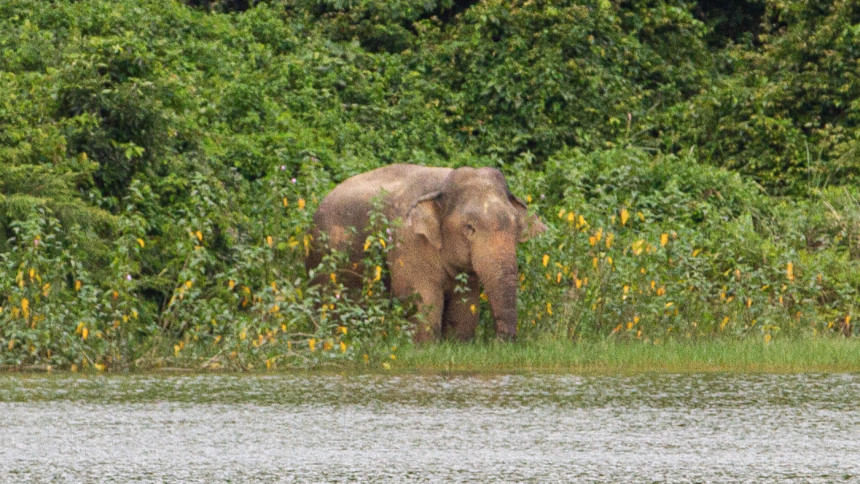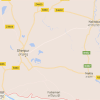No country for our gentle giants

In recent years, Bangladesh has seen a deeply troubling rise in human-elephant conflict—a slow-burning crisis that leaves behind broken homes, shattered families, and dying elephants. Each time an elephant falls, whether electrocuted or poisoned, it's not just the fall of a giant; it's the collapse of our commitment to coexist with the creatures that have shared this land for centuries.
Elephants are not the aggressors. They wander through villages not out of malice, but out of desperation. Their ancestral paths, once wide and safe, are now blocked by highways, settlements, and lost forests. With their migratory corridors gone and food sources disappearing, they have nowhere left to turn but human spaces.
The result is tragic on both sides. Over the past decade, at least 124 wild elephants have died across Bangladesh. Causes included electrocution (16), shootings (5), accidents (17), and natural causes such as heart failure (53). At least 80 people have also been killed. This is not conservation; this is carnage. And as villagers face the destruction of their crops with no state support, fear and frustration fuel further violence.
Elephants, like us, grieve. They remember. What must they make of live wires strung across their once-safe paths? What are they to think of fields that once fed them, now turned into death traps?
And what of the people? Many farmers lash out not out of cruelty, but out of desperation. When a single elephant raid can destroy an entire season's income, and the government offers only words but no real help, fear becomes their only companion. The night holds more than just darkness; it holds the threat of an elephant's charge.
See, this is not a battle between man and beast, but a tragedy of failed systems.
Even when authorities claim success, reality often contradicts their words. Earlier this year, the environment adviser claimed the human-elephant conflict in the Korean Export Processing Zone (KEPZ) area in Chattogram had been resolved through expert intervention. Yet, just months later, a child was tragically trampled by an elephant, and tensions flared again. Protest followed, one that activists allege was encouraged by local authorities. Whether planned or not, it exposed the fragility of claims that the issue had been solved when the root causes remain.
Elephants are not the enemy. They are victims of shrinking habitats, deforestation, and broken conservation promises. With forests vanishing rapidly and corridors blocked, they are forced into human spaces. What choice do they have?
Wildlife, just like humans, are rightful residents of this country, creatures who deserve their space, along with our protection and respect. They have the right to exist, to roam, and to live without fear.
The Forest Department's failure to enforce protective measures and provide adequate compensation only deepens the divide. Villagers, too, are victims of poor planning, state neglect, and sometimes desperation. No one should have to choose between protecting their homes and facing a wild elephant in the night.
It's time for Bangladesh to stop reacting and start acting. Elephant corridors must be legally protected and restored. Rapid-response teams, equipped with tracking and communication tools, should be deployed in high-risk areas. Compensation for crop damage must be timely and fair, so retaliation doesn't become the default response. Local communities must be engaged, not vilified.
Most importantly, wildlife crime, including the killing of elephants, must be taken seriously. The enforcement of the Wildlife Conservation Act cannot remain symbolic.
Bangladesh has made international promises to protect its wildlife, but those promises are hollow if we allow elephants to die under our watch, night after night. If we continue down this path, elephants will be gone before the next generation ever sees one, except maybe in faded textbooks and fading memories.
And we will have only ourselves to blame.
The question is no longer whether we can save them. It is whether we will.
Naziba Basher is a journalist at The Daily Star.
Views expressed in this article are the author's own.
Follow The Daily Star Opinion on Facebook for the latest opinions, commentaries and analyses by experts and professionals. To contribute your article or letter to The Daily Star Opinion, see our guidelines for submission.

 For all latest news, follow The Daily Star's Google News channel.
For all latest news, follow The Daily Star's Google News channel. 







Comments